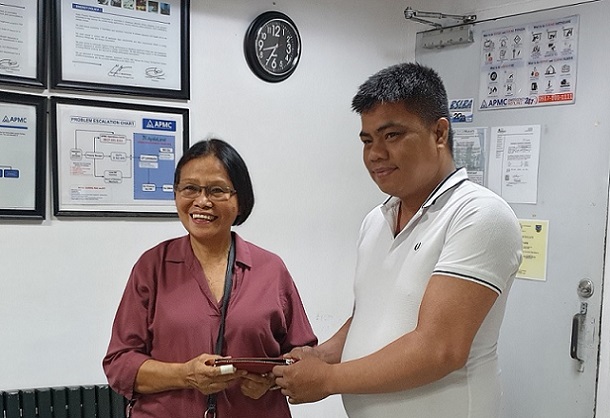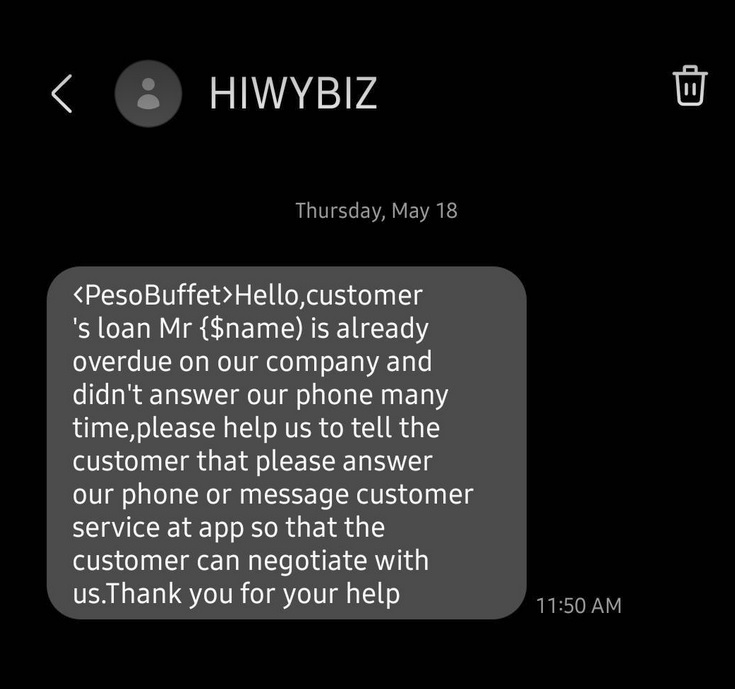
Something happened last week that once again affirmed my belief in the goodness of men.
It was Tuesday, May 23, when my VERA Files colleague Chin Samson and I had a meeting with a visiting German journalist, who was doing a story on the first year of the Marcos Jr. presidency, at the Mentore UCC Café, Ayala Center in Makati.
Throughout the interview, my phone was on silent mode.
We went our separate ways after. I went to the Landmark Department Store, which was just across Mentore Café, then walked to Ayala One Terminal to take the shuttle van to Las Pinas. It was about 5 p.m.
While waiting for the van to leave, I thought of checking my email. I couldn’t find my cellphone!
I got off the van and walked back to Mentore Café. The waiter said he didn’t find any cellphone when he cleared the table after we had left. The coffee shop management said it will take a few days before they could check on the CCTV and promised that they will update me. They never did.
I tried calling my number using my back-up mobile phone. It was ringing but no one was responding. Maybe because it was on silent mode. I texted and pleaded to whoever may have found it to please contact me.
Worried that it could be used for something bad, I tried calling Tarra Quismundo, Globe’s public relations manager, but she was in a meeting. I was able to immediately get through Liza Reyes, head of Globe’s public relations and communications strategy, who patiently guided me on what to do:
• Freeze the account.
• Execute an affidavit of loss.
• Go to a Globe store where a customer officer will give you the assistance you need.
I did all of those.
Losing a cellphone is upsetting not only because of the cost of the unit but also because a lot of one’s life is linked in that 168-gram thermoset plastic. Through the Grab app on my cellphone, I order food. Transport is made easier through the same app. Payments are made through G-cash. Etcetera. Cellphones have become an essential part of one’s home and office.
With the possibility that my number has been compromised, I tried to freeze and deactivate a number of those links.
Meanwhile, to manage my misery, I tried to rationalize the loss as a lesser misfortune than if I slipped and got injured, or other worse incidents. I think of others who are bearing heavier burdens calmly and courageously and I felt embarrassed by my distress.
But still, I prayed and prayed that the one who found it would be a good person and return my phone.
Past 11 p.m. on Thursday, May 25, VERA Files editor Elma Sandoval sent me a message on Facebook asking if I had lost my cell phone because Merinette Retona, head trainer of VERA Files who was in Chiangmai, Thailand, saw a message in VERA Files Facebook messenger from a certain Lubert Perona. He introduced himself as the person who found my phone and gave his phone number.
It was a miracle!
I immediately contacted him. Lubert is with the Ayala Center Security Team. He said he was on duty as a roving security guard on Tuesday afternoon when he found my phone, which was inside a red leather case, on the street in front of Mentore Café.
I surmise that when I put it inside my cross-body bag, it slipped down to the ground instead. It didn’t make a sound because it was in a case.
He said he was trying to find a way to contact me but can’t open the phone because it was locked. Until he found my calling card in the pocket of the case.
He said he turned over my phone to the Ayala Center marshal security office at the 2nd level of Park Square Steel Parking. I went there the next day and got back my phone. It was Lubert’s day off but he came to personally turn over my phone.
Of course, a big thank you is in order for Lubert.Imagine if someone not-so-honest had found it. “Ginawa ko lang po ang ‘yung tama” was all he could say in reply to my profuse thanks.
My gratitude also to the Ayala Center Security Team led by Roosevelt Battaring. And to Ayala Center General Manager Wilbert Guevarra, who apparently runs an efficient and upright team.
It was also nice meeting retired police officer Edwin Quilala, security coordinator of Ayala Center.
They declined my thank you cash gift, saying, as Lubert had said, they just did their job.
When you go through bad experiences such as this, you appreciate every bit of kindness, such as Globe’s efficiency and compassion (special mention for the staff of Globe Southmall), and Banco de Oro’s helpful customer service.
Truly, as my favorite poem, Desiderata, reminds us, “With all its sham, drudgery and broken dreams, it is still a beautiful world. “



